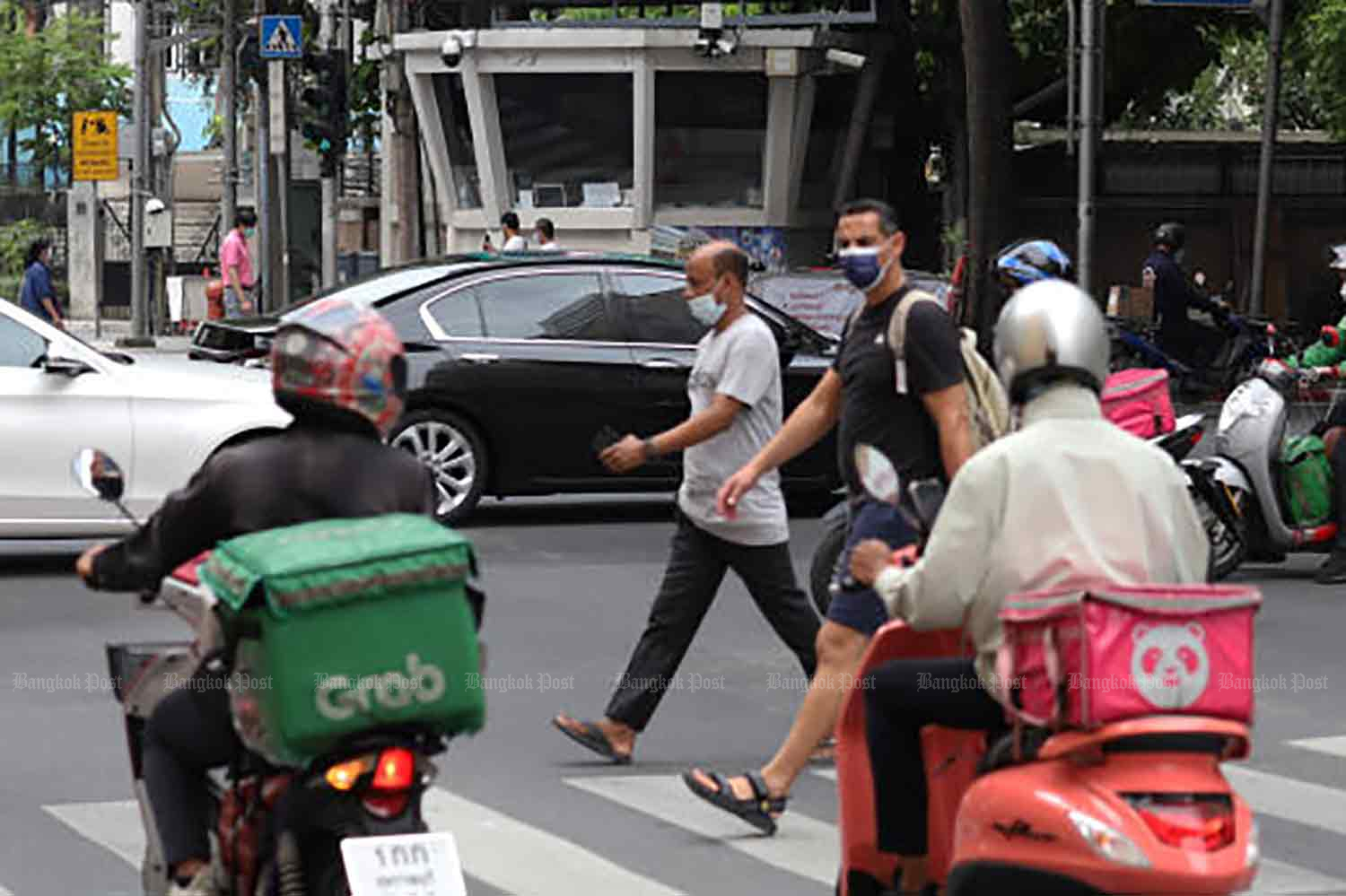
Delivery riders, often considered informal workers, are calling on the next government to ensure they receive the same benefits as regular employees, such as health insurance, according to an activist.
Pattamalak Thongsri, owner of the "Dearmedearyou" Facebook page, on Saturday said that based on her research, in which numerous riders were interviewed, most of them faced issues such as road accidents and sexual harassment, without proper support from their companies.
She did not say how many drivers were interviewed.
She said they want the future government to change its policies and ensure they receive the same benefits as their colleagues who work in the office.
"In Thailand, ride-hailing platforms have been criticised for not adequately addressing the issue of harassment faced by their riders," Ms Pattamalak said.
She said that instead of properly addressing such complaints, companies only block the culprits from using a specific rider's services, as opposed to banning them completely from their app.
This approach may not be sufficient in addressing the issue and riders may feel neglected by the system, she said.
She said while many companies say that they are concerned by harassment issues, there is no clear policy on the matter.
Ms Pattamalak was speaking at a conference regarding the well-being of delivery riders at the Bangkok Art and Culture Centre on Saturday.
The event was attended by activists, delivery riders and politicians.
Somchat Ruangpoo, a food delivery rider, said riders are often considered "partners" rather than "employees", meaning they are not entitled to employee benefits, such as vehicle and health insurance.
This ends up penalising the riders, the lifeblood of such companies.
"When a road accident occurs, riders are frequently required to handle repairs or hospital expenses on their own without any company assistance," he said.
Injuries occur without company support, Mr Somchat said, citing his own experience in which he had a stroke from wearing a helmet for too long.
Paopoom Rojanasakul, deputy secretary-general of the Phue Thai Party and director of the Pheu Thai Party Policy Center, said one possible solution to the problem is to issue a law protecting the rights of informal workers.
"We should ensure the income of a freelancer is not less than that of formal employees if they work on the same level," he said, adding a platform's payment system should be transparent and fair to riders.
Dejrat Sukkumnerd, director of the Move Forward Party's Think Forward Centre, said a system should be put in place to address conflicts between riders and ride-hailing platforms by allowing their riders to form their own labour unions.
He also said the law should be updated and there should be an act regulating working conditions, wages, benefits and workloads for riders.
Pisit Leeahtam, Democratic Party policy chairman and party-list MP, said presenting a bill on the matter to parliament for approval is a lengthy process.
Therefore, the best solution in his view is to stick with the current law while interpreting the rider as a formal employee, he said.
"Companies should place more emphasis on the safety of the vehicles used for transport, ensuring that they meet adequate safety standards," he told the conference.







